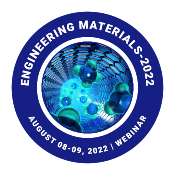Emerging Technologies in Materials Science
Emerging technologies in materials science: Emerging technology is a term commonly used to describe new technology, but it can also refer to the continuous development of existing technology; it may have a slightly different meaning when used in different fields such as media, business, science or education. Consequently, the current chapter should serve as a mild reminder of the information most readers already have, a direct introduction to newcomers to the discipline, and as a means of connecting this well-known knowledge with sustainability issues. The languages we use to communicate certainly include metals and content, whether in informal or formal settings. Exploring the origins of words like metal, material, iron and steel can reveal a lot about how different cultures have formed current concepts that these words now suggest. Dictionaries and encyclopaedias offer the first definitions that scientists and professionals share with people before they move on to their special skills. Metals are the most abundant chemical element on the planet. The Mendeleev language table of chemistry proposes a universal description of metals, which contradicts the assumptions of metallurgists and physicists. The word is the same, but the concepts are different! Buildings, infrastructure, transportation, equipment, industrial facilities and other human artefacts are made of materials, a unique form of matter.
Related Conference of Emerging Technologies in Materials Science
9th International Conference on Astronomy, Astrophysics and Space Science
17th International Conference on Exhibition on Lasers, Optics & Photonics
11th International Conference on Quantum Physics and Mechanics
Emerging Technologies in Materials Science Conference Speakers
Recommended Sessions
- Batteries and Energy Materials
- Bio materials and Tissue Engineering
- Computational Materials Science
- Emerging Technologies in Materials Science
- Materials Chemistry and Physics
- Materials Engineer Training and Career
- Materials Science and Engineering
- Mechanics and Materials Science
- Mining, Metallurgy and Materials Science
- Nanotechnology in Materials Science
- Polymer Science and Technology
- Structural Materials and Characterization
Related Journals
Are you interested in
- 3D Laser Triangulation - Euro Optics 2026 (Italy)
- Advancements in Photonics - Optics-2026 (Switzerland)
- Algorithms in Quantum Computation - Quantum Mechanics 2026 (Switzerland)
- Applications and Trends in Optics and Photonics - Optics-2026 (Switzerland)
- Astrobiology and Life Beyond Earth - ASTRO PHYSICS 2026 (France)
- Classical & Physical Optics - Euro Optics 2026 (Italy)
- Cosmology and the Early Universe - ASTRO PHYSICS 2026 (France)
- Earth Observation and Remote Sensing - ASTRO PHYSICS 2026 (France)
- Fiber Laser Technology - Optics-2026 (Switzerland)
- Fiber Lasers: New Types and Features Expand Applications - Euro Optics 2026 (Italy)
- Future Trends: Interstellar Travel and Space Colonization - ASTRO PHYSICS 2026 (France)
- Geometrical Optics - Euro Optics 2026 (Italy)
- Gravitational Waves and High-Energy Astrophysics - ASTRO PHYSICS 2026 (France)
- Interpretation of Quantum Mechanics - Quantum Mechanics 2026 (Switzerland)
- Laser and Its Types - Euro Optics 2026 (Italy)
- Laser Systems - Optics-2026 (Switzerland)
- Lasers in Medicine - Euro Optics 2026 (Italy)
- Nano & Quantum Optics - Euro Optics 2026 (Italy)
- Nano photonics and Bio photonics - Optics-2026 (Switzerland)
- Nuclear Engineering - Quantum Mechanics 2026 (Switzerland)
- Nuclear Fission and Fusion - Quantum Mechanics 2026 (Switzerland)
- Nuclear Physics - Quantum Mechanics 2026 (Switzerland)
- Nuclear Quantum Physics - Quantum Mechanics 2026 (Switzerland)
- Observational Astronomy and Telescope Technology - ASTRO PHYSICS 2026 (France)
- Optical Communications and Networking - Optics-2026 (Switzerland)
- Optical Fiber - Optics-2026 (Switzerland)
- Optical Imaging and Sensing - Euro Optics 2026 (Italy)
- Optical Physics - Optics-2026 (Switzerland)
- Optical Technologies - Euro Optics 2026 (Italy)
- Optics and Lasers in Medicine - Optics-2026 (Switzerland)
- Optics in Astronomy and Astrophysics - Euro Optics 2026 (Italy)
- Optics in Astronomy and Astrophysics - Euro Optics 2026 (Italy)
- Optoelectronics - Optics-2026 (Switzerland)
- Photonic Crystal Materials and Crystallography - Euro Optics 2026 (Italy)
- Photonics and its Devices - Euro Optics 2026 (Italy)
- Planetary Science and Exoplanets - ASTRO PHYSICS 2026 (France)
- Principle of Interferometers - Euro Optics 2026 (Italy)
- Quantum Chemistry - Quantum Mechanics 2026 (Switzerland)
- Quantum Chromodynamics (QCD) - Quantum Mechanics 2026 (Switzerland)
- Quantum Control and Measurement - Quantum Mechanics 2026 (Switzerland)
- Quantum Cryptography - Quantum Mechanics 2026 (Switzerland)
- Quantum Field Theories - Quantum Mechanics 2026 (Switzerland)
- Quantum Information & Quantum Computing - Quantum Mechanics 2026 (Switzerland)
- Quantum Mechanics - Quantum Mechanics 2026 (Switzerland)
- Quantum Nanoscience - Quantum Mechanics 2026 (Switzerland)
- Quantum Optics - Quantum Mechanics 2026 (Switzerland)
- Quantum Physics - Quantum Mechanics 2026 (Switzerland)
- Quantum Science and Technology - Optics-2026 (Switzerland)
- Quantum Science – Foundations and Frontiers - Quantum Mechanics 2026 (Switzerland)
- Quantum Technology - Quantum Mechanics 2026 (Switzerland)
- Quantum Thermodynamics - Quantum Mechanics 2026 (Switzerland)
- Quantum Transport - Quantum Mechanics 2026 (Switzerland)
- Silicon Photonics and Organic Photonics - Euro Optics 2026 (Italy)
- Solar Physics and Space Weather - ASTRO PHYSICS 2026 (France)
- Space Missions, Satellites, and Instrumentation - ASTRO PHYSICS 2026 (France)
- Space Technology, Robotics, and AI in Astronomy - ASTRO PHYSICS 2026 (France)
- Stellar and Galactic Astrophysics - ASTRO PHYSICS 2026 (France)
- Surface Enhanced Spectroscopy (SES) - Optics-2026 (Switzerland)
- Technologies in Lasers, Optics and Photonics - Optics-2026 (Switzerland)
- Theoretical Astrophysics and Computational Modeling - ASTRO PHYSICS 2026 (France)

